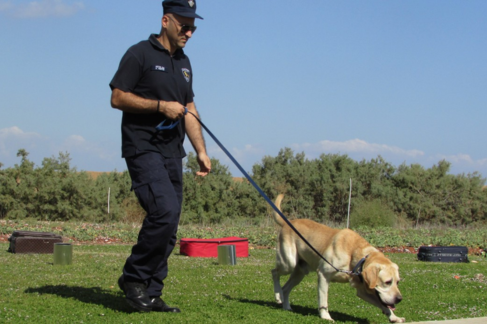Dogs bring companionship, love, and joy into our lives. However, like humans, they can experience behavioural challenges that make life difficult for both the pet and the owner. While many minor issues can be addressed with patience and consistency, there are situations where hiring a professional behavioural dog trainer becomes necessary. This article explores when to consider seeking expert help to correct behavioural issues in your dog.
1. Aggression Towards People or Other Dogs
Aggression is one of the most serious behavioural issues a dog can exhibit. It can manifest in various forms, including growling, snarling, lunging, biting, and excessive barking directed at people, other dogs, or animals. In severe cases, aggression can lead to injury and may even require the dog to be removed from certain environments.
When to seek help:
- If your dog regularly growls, snaps, or bites without warning.
- If your dog shows signs of fear-based aggression when around strangers or new situations.
- If your dog reacts aggressively to other animals, making walks or playdates unsafe.
Professional trainers have experience in dealing with aggressive behaviour. They can identify the triggers and use behavioural modification techniques to manage or reduce aggression. Timely intervention is critical, as unaddressed aggression can escalate.
2. Persistent Anxiety and Fear
Dogs can suffer from anxiety just like humans. Common signs of anxiety include pacing, whining, trembling, hiding, or destructive behaviour. Some dogs experience generalized anxiety, while others have situational fears (such as fear of thunderstorms or loud noises). Separation anxiety is particularly common and leads to destructive behaviours when the dog is left alone.
When to seek help:
- If your dog displays extreme fear or anxiety on a regular basis.
- If your dog becomes destructive when left alone, barking, chewing, or urinating indoors.
- If your dog’s anxiety makes daily routines difficult (e.g., they refuse to go outside or interact with new people).
Behavioural dog training can help develop a plan to gradually desensitize your dog to anxiety-inducing situations. This process often involves counterconditioning and teaching the dog to associate positive outcomes with previously stressful triggers.
3. Lack of Socialization
Dogs are naturally social animals, but if they are not exposed to different environments, people, and animals early on, they may develop fear, nervousness, or inappropriate behaviours in social settings. Socialization is a key aspect of a dog’s development, and when done improperly, it can lead to problems such as excessive shyness or aggression.
When to seek help:
- If your dog becomes overly nervous or aggressive around other animals or people.
- If your dog struggles with interacting in new environments, like parks or busy streets.
- If your dog reacts negatively to common social situations, such as meeting guests or encountering other dogs on walks.
Professional trainers can organize structured socialization activities that expose your dog to a range of controlled experiences, helping them build confidence and reducing negative reactions.
4. Uncontrollable or Excessive Barking
While barking is a natural form of communication for dogs, excessive barking can be disruptive and a sign of underlying behavioural issues. Dogs bark for many reasons—excitement, fear, boredom, or territoriality—but when barking becomes uncontrollable, it can lead to neighborhood disputes and frustration for owners.
When to seek help:
- If your dog barks excessively at people passing by, guests, or even seemingly at nothing.
- If you’ve tried to manage the barking with no success.
- If the barking persists, even when the dog is well-exercised and mentally stimulated.
Professional behavioural training for dogs can help identify the cause of excessive barking and introduce techniques to reduce or eliminate the behaviour. This often involves teaching the dog more appropriate ways to express their needs or feelings.
5. Inability to Follow Basic Commands
Basic obedience commands such as “sit,” “stay,” “come,” and “down” are essential for a well-behaved dog. If your dog is consistently ignoring these commands, it may indicate deeper behavioural issues or a lack of clear communication between you and your pet.
When to seek help:
- If your dog seems to ignore or forget basic commands in stressful or exciting situations.
- If your dog refuses to follow commands despite your best efforts in training.
- If your dog’s lack of obedience becomes a safety risk, such as not coming when called near traffic.
A professional trainer can help you establish clear communication with your dog, ensuring they understand and respond to your commands reliably, even in challenging situations.
6. Resource Guarding or Possessiveness
Resource guarding occurs when a dog becomes possessive of food, toys, or other objects, displaying aggressive behaviour when someone approaches their possessions. This behaviour can escalate and pose a risk to both family members and other pets.
When to seek help:
- If your dog growls, snaps, or bites when someone approaches their food bowl, toys, or resting spot.
- If resource guarding behaviour worsens or spreads to other objects.
- If your dog shows possessiveness over people, becoming aggressive when others approach.
A professional behavioural dog trainer can teach your dog to feel more comfortable when others are around their resources and reduce the anxiety associated with sharing or giving up objects.
7. Difficulty with House Training
House training a dog can be challenging, but most dogs learn with patience and consistency. However, if your dog is older or has chronic house-soiling issues, it may be a sign of a behavioural or medical problem.
When to seek help:
- If your dog continues to have accidents in the house despite consistent training efforts.
- If your dog urinates or defecates indoors as a result of anxiety or excitement.
- If the house-training issues worsen over time rather than improve.
A professional trainer can help address these issues by understanding the cause (whether behavioural or medical) and implementing a tailored house-training plan.
8. Rescue Dogs with Unknown Backgrounds
Rescue dogs often come with unknown histories that may include neglect, abuse, or inadequate socialization. As a result, they may exhibit fear, anxiety, aggression, or other behavioural issues. These dogs require extra care and understanding.
When to seek help:
- If your rescue dog shows signs of trauma or fear that you’re unable to address on your own.
- If your dog struggles to adjust to your home and routines.
- If your dog displays behaviours like excessive fear, barking, or avoidance that make everyday life difficult.
A professional trainer experienced in working with rescue dogs can help them overcome past trauma and adjust to their new life, offering support to both the dog and the owner.
Conclusion
While many minor behavioural issues can be resolved with patience and consistency, more serious problems often require the expertise of a professional behavioural dog trainer. Whether your dog is dealing with aggression, anxiety, disobedience, or socialization challenges, a trainer can provide the guidance and support necessary for long-term improvement. If your dog exhibits any of the behaviours discussed above, seeking professional help can lead to a happier and healthier relationship for both you and your pet.
For more information visit:- https://regulararticles.com/



